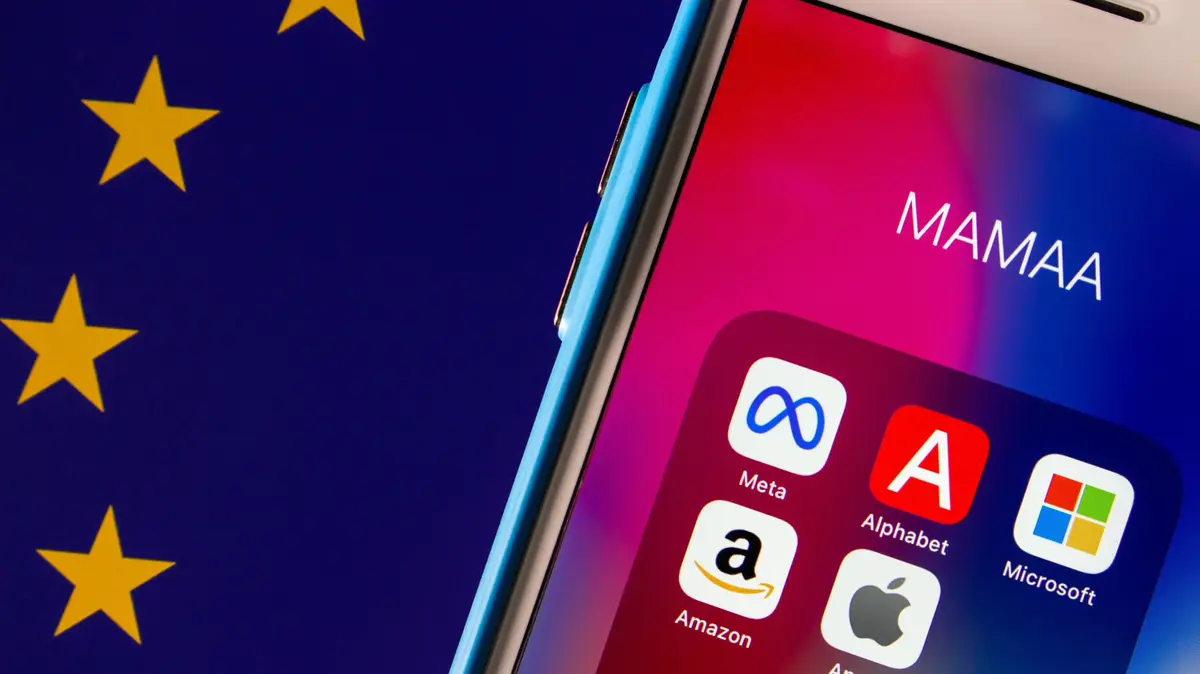Apple is coming, Google is building a new one, IBM has long been there: Technology giants from all over the world have discovered Munich for themselves.
Why is everyone drawn to the Isar?
A search for clues.
Munich - Whenever visitors from Silicon Valley are guests at the Google development center in Munich, Wieland Holfelder takes his guests to the sixth floor of the building.
"Isar Valley" is the official name of the top floor on Google.
When the view is clear, the view extends to the high mountain ranges of Karwendel and Wetterstein.
Up here, Holfelder casually explains to his visit from California: Munich is actually the real Mountain View.
Of course everyone on Google knows that Mountain View is a town in Silicon Valley south of San Francisco, famous for the headquarters of the search engine company.
But there, says Holfelder, word got around long ago: "Over the past ten years, Munich has developed into one of the leading IT locations in Europe."
IBM and Microsoft have been in Munich for some time, Apple is investing over a billion euros
The tech giant IBM recognized this as early as 2016, invested 200 million euros in Munich and rented the Schwabing Highlight Towers next to Microsoft - at 114 and 126 meters high, they are among the few skyscrapers in the city.
"When we look down here and see the green surroundings, we jokingly call it 'Silicon Wiesn'," says Wolfgang Rodler, head of the IBM customer center in Munich.
In April, the iPhone manufacturer Apple announced that it would invest over one billion euros in Munich over the next three years. A center for 1,500 IT experts is to be built near the Spaten brewery. Apple boss Tim Cook sounded downright euphoric when announcing the mega investment: "I couldn't be more excited about what our engineering teams will discover in Munich." But why Munich of all places?
"Munich's success is based on two factors: One is its proximity to industry, especially to car manufacturers and mechanical engineering," says Oliver Falck from the Munich Ifo Institute.
"On the other hand, Munich benefits from the three universities, especially the Technical University of Munich."
Especially since Munich can score with “soft factors”, as Falck adds.
This includes the high recreational value, the proximity to mountains and lakes.
And thanks to Oktoberfest, FC Bayern and Hofbräuhaus, Munich is world famous - an advantage in the global battle for talent.
"With its international airport, Munich is also very easy to reach."
+
Munich has made a name for itself worldwide as an IT location.
On the left in the picture the Highlight Towers in the north of Munich with IBM and Fujitsu.
Microsoft's German headquarters are in the immediate vicinity.
© picture alliance / imageBROKER
Huawei: Chinese IT giant in Munich - "Researchers rarely wanted to move to Bonn"
Take Huawei, for example: The 600 telecommunications professionals from Munich come from 49 nations, while Germans are in the minority with 30 percent.
"It is relatively easy to convince candidates from Munich," says Stefan Feuchtinger, Huawei's vice-boss in Munich.
A few years ago, Huawei was still doing research in Bonn, and since 2009 in Munich.
“We found that top-class researchers rarely wanted to move to Bonn, but Munich is different,” says Feuchtinger.
The boom in the Bavarian capital is reflected in the figures from a study by Ifo researcher Falck: In 2012, almost 90,000 people in the greater Munich area worked in the IT sector, compared to almost 120,000 in 2019. Surprisingly, the big names do not dominate, 80 percent of IT companies have fewer than ten employees - including a number of start-ups.
The fact that Munich became a founding metropolis is also thanks to a woman who deliberately tried to copy Silicon Valley. Susanne Klatten, billionaire and major BMW shareholder. At the turn of the millennium, Klatten was fascinated by the entrepreneurial spirit of Silicon Valley, where venture capitalists had settled around the campus of Stanford University and formed business models from the students' ideas. In 2002 Klatten imported this principle to Garching in the Munich district. “UnternehmerTUM” is the name of their start-up forge, the three capital letters indicate the proximity to the Technical University of Munich. 80 new start-ups emerge here every year, and an estimated half survive the founding phase.
Prominent example: Celonis.
In 2011 Bastian Nominacher, son of a Bavarian family of bakers, founded the start-up with two TU students.
As a software optimizer, Celonis relies on industrial customers - unlike start-ups from Berlin, which usually have end users in their sights.
The result: Celonis is largely unknown even in Munich, although the IT specialist is considered the most valuable German start-up.
Investors value the company at 9.1 billion euros, which roughly corresponds to the value of the Munich-based DAX group MTU.
An IPO is conceivable, financial analysts are already dreaming of a "second SAP".
+
The Google company sign is attached to the company's headquarters.
© Marcio Jose Sanchez / dpa
The established companies appreciate that. "The mix of a lively start-up scene, Dax companies and first-class universities makes Munich so attractive," says Google manager Holfelder.
Stefan Wagner, head of SAP research in Munich, calls the technology location a “diverse and active ecosystem”.
Wolfgang Rodler from IBM confirms: "The fact that everything is concentrated here is a huge advantage." Munich works like a magnet.
Munich attracts IT companies - CSU giants Stoiber and Söder as pioneers
Politicians play a decisive role in this, says Rupert Lehner from the IT industry association Bitkom. "What the state government and the city have done in the past in terms of marketing has really fueled the boom in Munich." Lehner says this not only as a Bitkom functionary, but also as the head of Fujitsu in Munich. Japanese companies used to settle in Düsseldorf, says Lehner, then the Free State opened a representative office in Tokyo. "Suddenly everyone wanted to go to Munich." The Free State has been promoting new technologies since the 1990s - under CSU Prime Minister Edmund Stoiber still under the motto "Laptop and Lederhose". "If you look at Söder's current high-tech agenda, you can see that this policy continues to this day," says the Fujitsu manager.
Söders plan: 1000 new professorships, 13,000 new study places, over 20 top research centers, promotion of quantum computers and artificial intelligence. That is worth 3.5 billion euros in taxpayers' money to the CSU Prime Minister.
This policy is flanked by economic development in the Munich City Hall. In the economic department, Clemens Baumgärtner has the say, the CSU politician maintains a kind of special unit of around 50 employees. The troop's goal: To get companies to invest their money in Munich. “They are highly motivated people,” says Baumgärtner. “None of them drops their pencil at 5 p.m.” This also applies to the boss: Baumgärtner met Apple boss Tim Cook for a Mass in the Beetle at Oktoberfest 2019. Discussion topic: An Apple branch in Munich. “This first personal meeting was a key moment, here the bride and groom looked each other in the eye for the first time,” remembers Baumgärtner. A few months later, the Apple boss loosens the billion - the Munich boom continues.
Munich is becoming “Silicon Valley”: the population is threatened with further rent increases
This triggers fears in parts of the population.
Are the IT high earners fueling the rent increase?
Will ordinary people soon have to vacate their homes?
Under the pressure of Silicon Valley, San Francisco plunged into a US-wide “homeless crisis”.
Berlin also shows how quickly the situation can escalate: In 2016, Google wanted to build a start-up campus in the alternative Friedrichshain-Kreuzberg district.
Protests broke out and Google withdrew.
There is resistance to the construction of the Tesla factory near Berlin to this day.
And Munich? On house walls there are graffiti like "chase Google away". There is less polemic in the city's district committees. The communal Greens describe the housing situation around the Google branch as "extremely tense". They demand that Google build apartments. Now a round table should bring the solution. The next dispute looms with Apple.
One contribution to defusing the situation could soon come from an unexpected source: from the next generation in the tech industry.
At the end of June, Susanne Klatten wants to inaugurate another center for young founders in Munich, the “Munich Urban Colab”.
Start-ups should develop ideas to improve life and work in metropolitan areas - with the technologies of the 21st century.
The BMW heiress calls the new building in the creative quarter a “hotspot for smart city solutions”.
If the ideas become reality, Munich would be a decisive step ahead of the real Silicon Valley.
List of rubric lists: © picture alliance / imageBROKER









